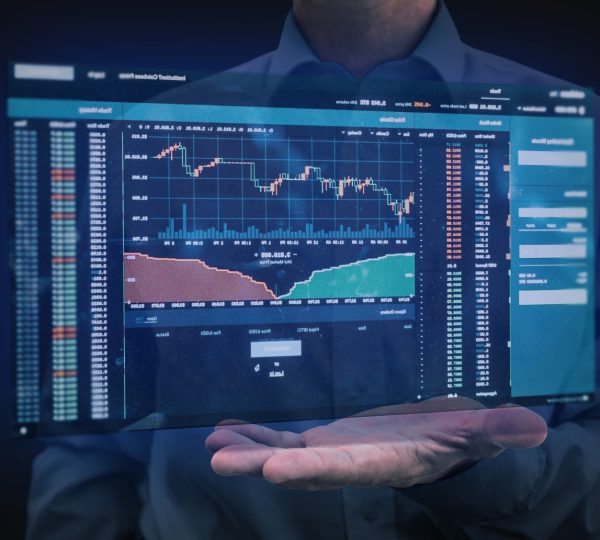Governments heavily regulate some economies and control the means of production and wealth distribution, and set the costs of goods and services. The worker pays in the most rigidly planned or command economies. Production and labor are governed by supply and demand laws in an entirely free market economy as opposed to a central planner. Workers are paid the highest salaries businesses are willing to pay for their services. At the same time, companies offer products and services at the highest price that customers are willing to pay.

In a capitalist economy, the desire for profit compels enterprises to run as efficiently as possible and drives all trade to keep their market share. Private individuals possess most of the wealth in a capitalist economy, and these business owners, or capitalists, hire other people in exchange for money or other benefits.
In such a system, neither the government nor markets or businesses are regulated or supported by the state.
There is some form of a blend of markets and regulations, with different nations sitting at various points on the spectrum, and no country is entirely capitalist or has a purely free market. The nations with the most outstanding scores favoring the market economy are listed below.
Purely free market economies and command economies are more theoretical ideas than actual, functioning economic systems; practically all economies on Earth combine parts of both and are referred to as mixed economies. For instance, the government provides guidelines like minimum salaries and antitrust rules that must be adhered to, even though the United States permits businesses to determine prices and employees to negotiate pay. The FDA, EPA, FCC, and SEC are just a few regulatory agencies the U.S. government has that have the authority to intervene in businesses or markets. Most nations also levy taxes and implement trade restrictions like tariffs and quotas.
The nations that support entrepreneurship and private property rights typically have the most economic freedom. These regulations keep free market economics, sometimes known as laissez-faire economics. However, these nations frequently experience the most significant discrepancies in income and wealth inequality.
A form of economic organization known as capitalism gives private company owners (capitalists) ownership of the means of production and the right to the proceeds from the sale of commodities. These people then employ employees to utilize the means of production in exchange for pay or a salary; the workers do not own the means of production or the completed goods they produce, and they are not entitled to any profits; they receive a salary or wage.
The distribution and allocation of products created through price discovery are done through free markets. To agree on a price that, in principle, finds equilibrium based on supply and demand, buyers and sellers must compete with and among themselves.
Economic freedom is described as, by Heritage Freedom, “the basic right of every person to be in charge of their work and property. People are free to work, create, consume, and invest whatever they want in a society where the economy is free. Governments in economically free societies permit the free flow of labor, capital, and products and refrain from restricting individual freedoms over what is required to uphold and safeguard that freedom.”
Unrestricted by government control or interference, a free market economy exists. In an entirely free market, supply and demand are the sole factors used by buyers and sellers to determine prices. Therefore, to pay the lowest price (for buyers) or earn the most significant price (for sellers), buyers and sellers compete with one another and among themselves (for sellers). In a free market economy, there would be this kind of rivalry and price discovery for all goods and services and labor markets.
However, according to economic freedom, the U.S. is not among the top 10 market economies. This is due to the comparatively high level of government spending and regulation in the United States.
Are Scandinavian nations with free markets like Sweden and Norway?
Yes. These economies continue to rank quite highly in terms of economic freedom even though they frequently have high taxes and a solid social assistance system sponsored by the government. These countries often have robust safeguards for property rights, functional courts, honest governments, and freedom for business and open commerce.
How Good Are the Free Markets?
It depends, as with many other things. Nobody is compelled to engage in a free market, and transactions are initiated willingly. According to economic theory, free calls can distribute commodities and capital most effectively by using the pricing mechanism, competition, and forces of supply and demand. However, the issue with free markets is that they can result in inequality, mainly when there is an information asymmetry.
Despite the “perfect” knowledge assumption made by economic theory, sellers or producers typically have a much greater understanding of the products they sell than customers or purchasers. Furthermore, economists believe that there is “perfect” competition between buyers and sellers in the market. Still, we know that giant corporations have more significant sway over their demands and that wealthy customers may drive up the cost of essentials, particularly during times of crisis. As a result, vendors may more readily cut corners or conduct fraud, and customers can take advantage of it more quickly. To ensure the caliber of the goods being sold, to safeguard customers from fraud, and to maintain fair competition, there should be some level of government control or intervention.



